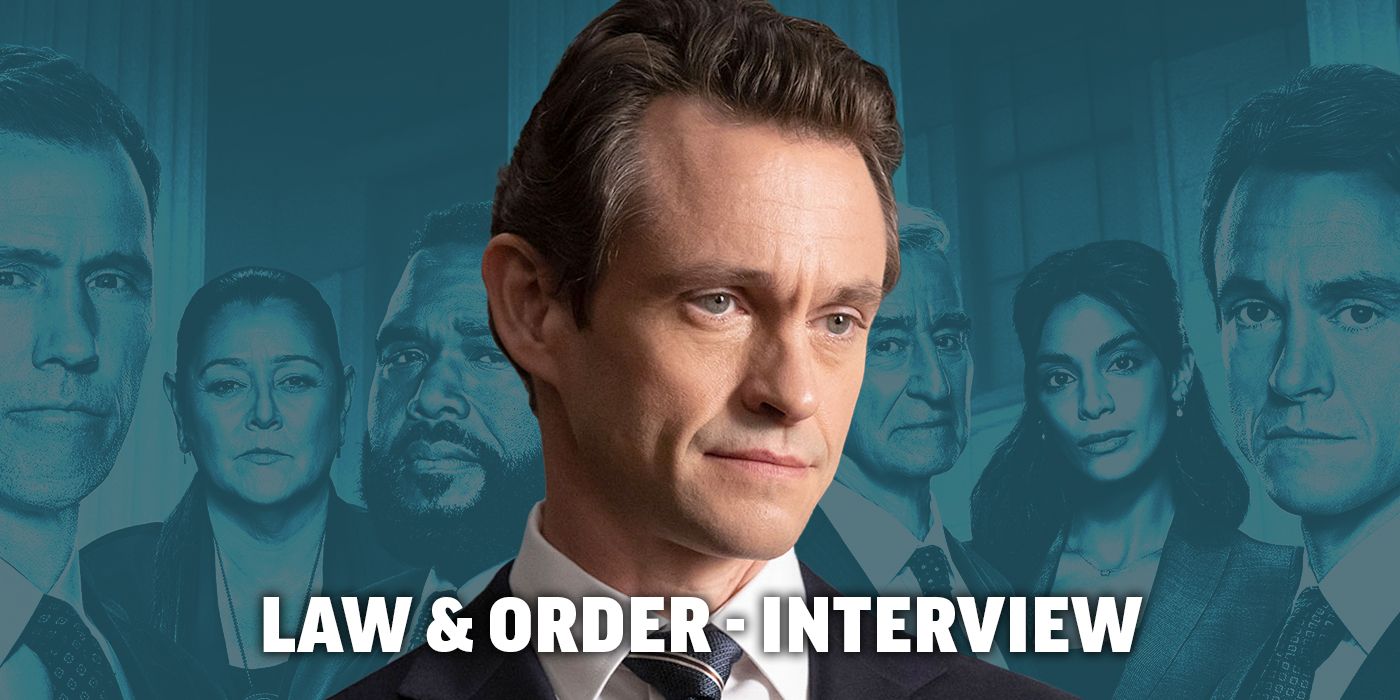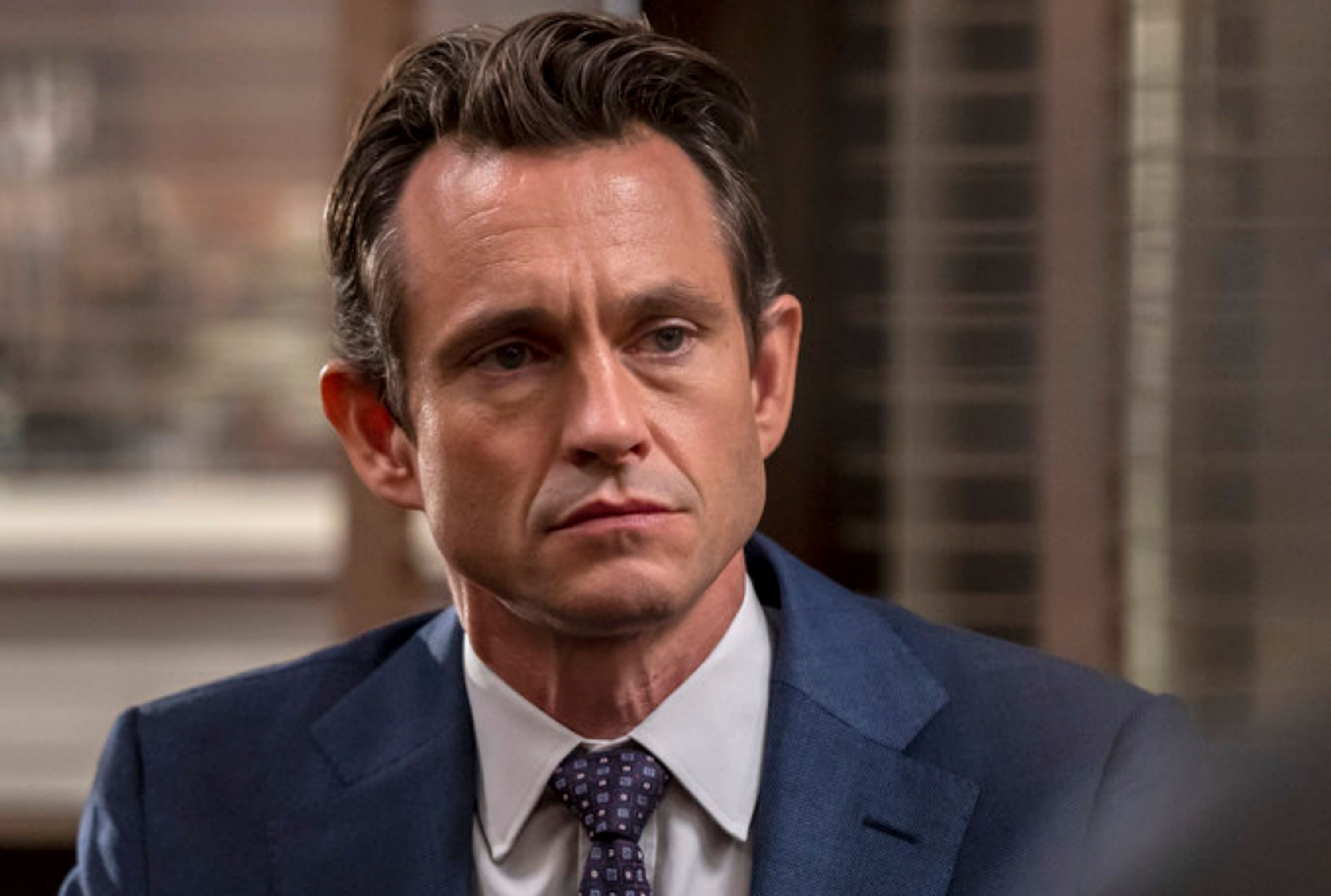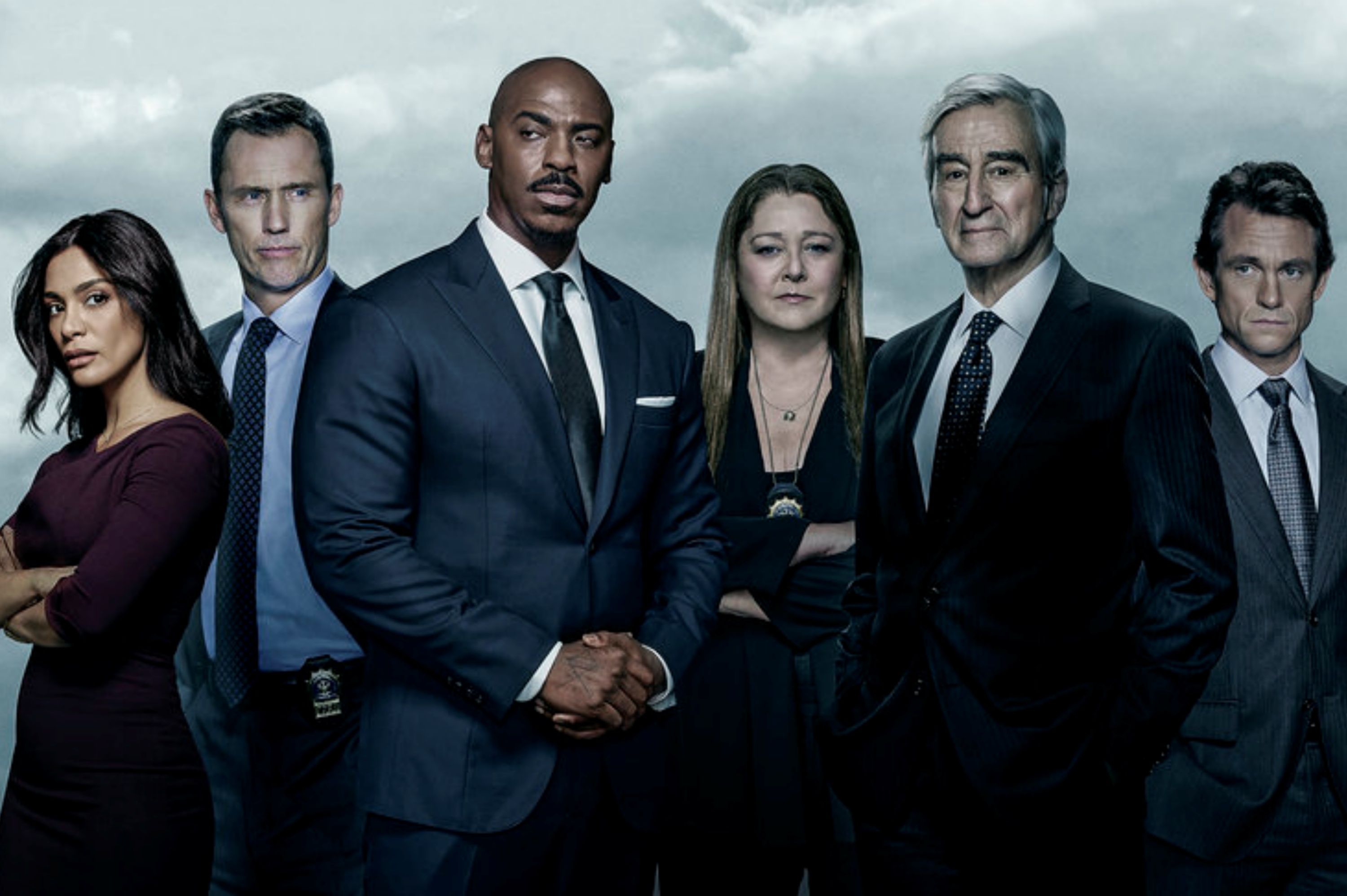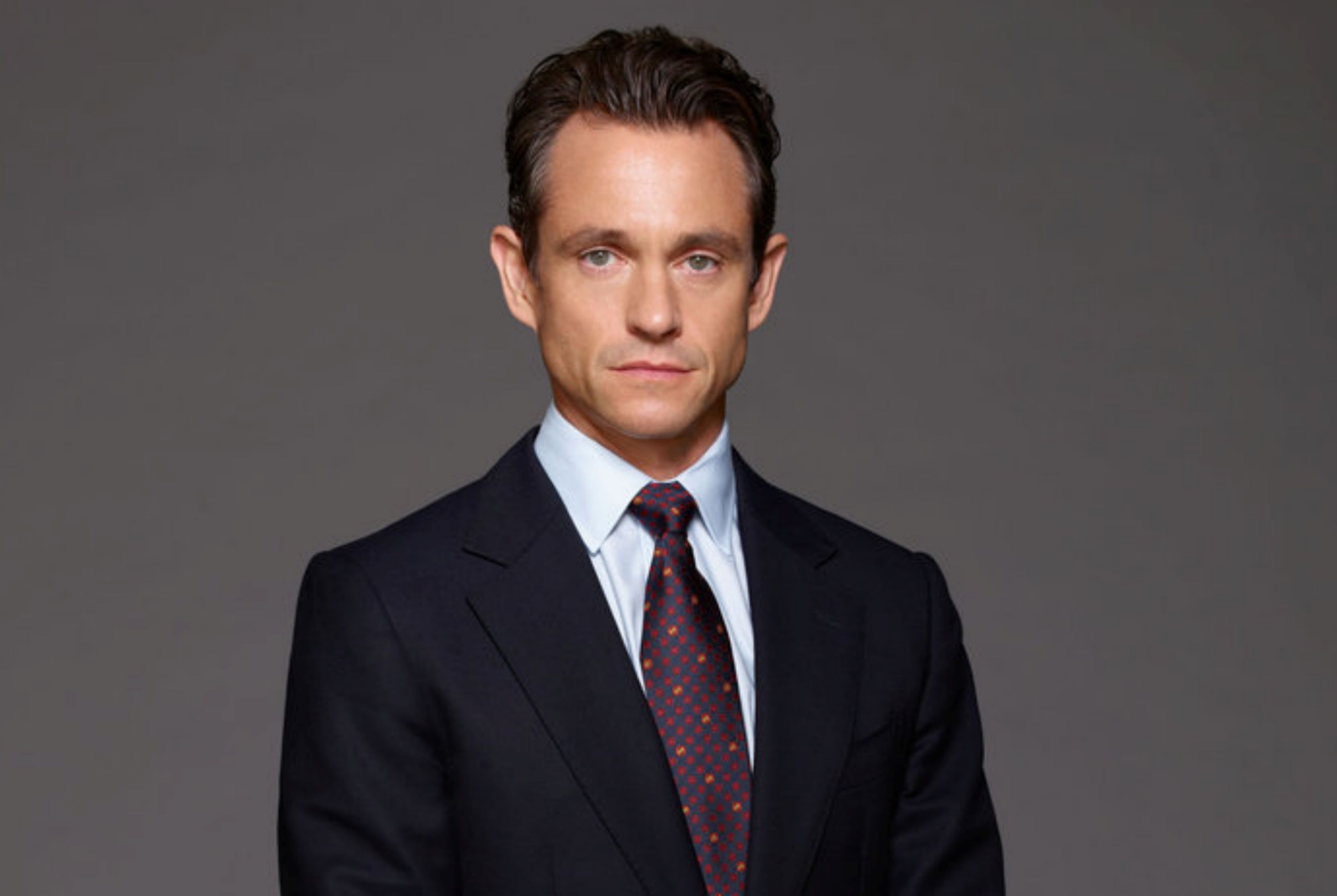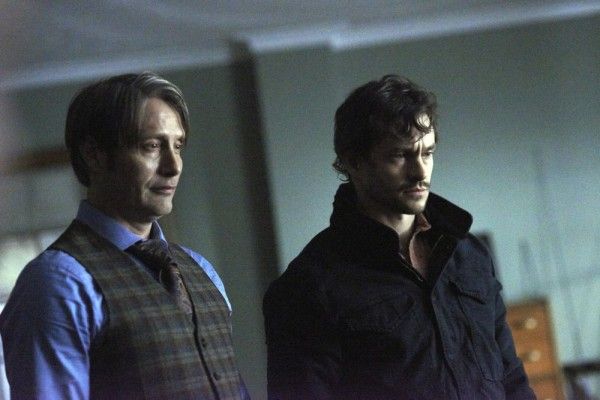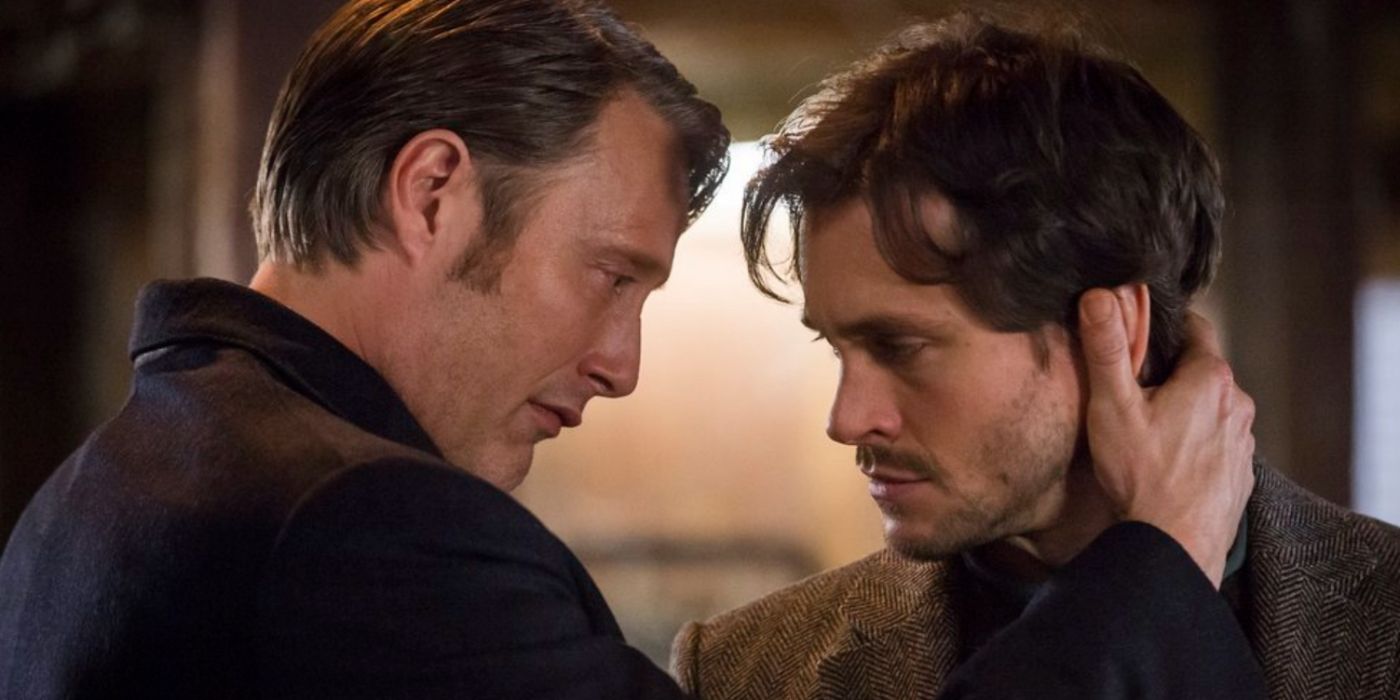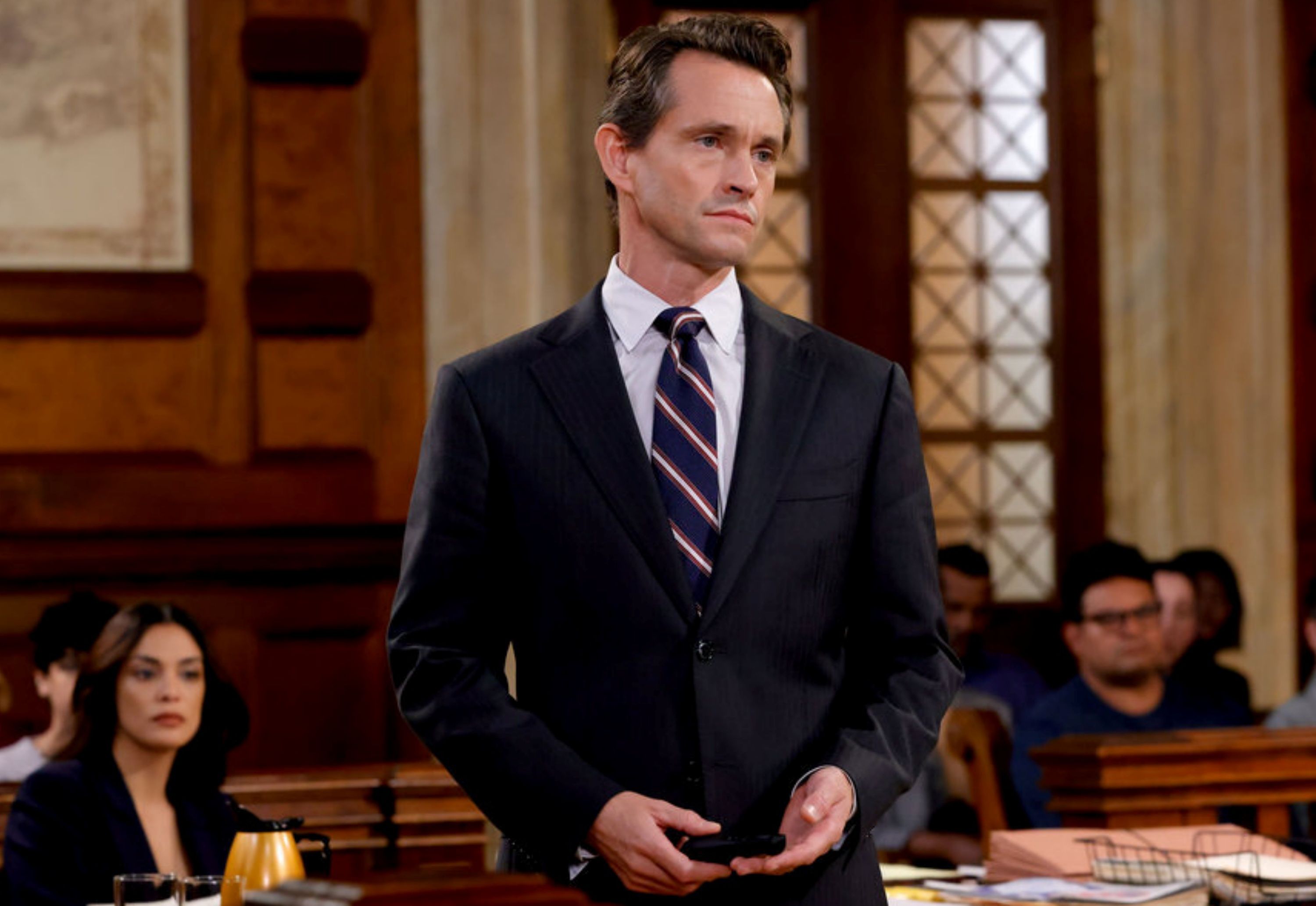Very few TV series have the staying power of NBC’s Law & Order, 22 seasons in (the original series ran for 20 seasons from 1990 to 2010, prior to returning for this current revival) and with a franchise that includes Special Victims Unit (SVU) and Organized Crime. The series continues to follow its structure of examining the police who investigate crime and the district attorneys who prosecute the offenders, while often exploring ripped-from-the-headlines cases.
During this 1-on-1 interview with Collider, Hugh Dancy talked about his role as Executive Assistant District Attorney Nolan Price, a defense attorney turned prosecutor in the office of Manhattan District Attorney Jack McCoy (Sam Waterston), what it’s been like to join the show, the challenges of finding and developing a character within the structure of this franchise, what it’s like to work with Waterston, playing someone morally ambiguous versus someone morally righteous, and the experience of doing the courtroom scenes. He also talked about whether he’s surprised that fans are still holding out hope for a fourth season of Hannibal, and what it was like to learn about how deeply Hannibal and Will were being shipped.
Collider: Law & Order seems like one of those shows that every actor has guest starred on, at some point, because it’s been on for so long, has had so many episodes, and every episode needs a guest cast. What’s it like to actually be a part of the main ensemble on the show that your wife made her TV debut on?
HUGH DANCY: It’s nice, for lots of reasons. It’s nice, specifically, to be on the flip side of what you’re describing, just to be present as all these actors come through. Some of those actors I know, or at least I’m aware of, and some, like with Claire [Danes], it may be their first job. Sometimes you look at these younger actors and think, “Oh, my God, who are you and who are you gonna be?,” not just in terms of success and fame, but in terms of how you can see them forming, and that’s really great. You get to host them and, in a way, help to define their experience. And in turn, that creates the experience that we’re all having. I’ve also been a “New York actor” for 15 years or so, and I’ve acted on the stage here, myself. When you look at a playbill, every single actor has Law & Order right on there, and I never have. Not because of that, but just in general, I’ve always felt slightly like I was moonlighting. The New York part of being a New York actor gave me imposter syndrome. So, I feel like this wipes that clean.
You’ve previously done long-term TV projects, with Hannibal and The Path, but Law & Order seems very much like a different kind of thing, with the weekly cases, and all the courtroom and legal jargon. What made you want to join that universe?
DANCY: All I had to go on was the first script of our first season, which was what they called the 21st season of the show. Because it was our first season, there was obviously a certain amount of character set-up, insofar as there is character in the show. I just had to go off that and of my understanding of the show, in its previous iterations. Once I had done three or four episodes, I realized that strictures that we were working under, and I don’t mean that in a negative sense. I just didn’t understand the strength of that device, with all the beats that play out. It has some variation, but it’s fairly rigid. To my surprise, I’ve ended up really quite enjoying all the limitations that imposes. You’ve got to find shape, space, and color within those defined boundaries. I’m also aware that I get to stand up and peacock in the court, and play around and deliver some longer speeches, which edge just out of pure exposition into something else, and I’m grateful for that. And then, I knew, from the get-go, that Sam [Waterston] was gonna still be involved, and that was a big consideration for me.
What are the challenges, in trying to develop a character on a show like Law & Order? When you’re part of something that’s so focused on the case, how do you, as an actor, find ways to work in aspects of character?
DANCY: I don’t know. That’s a really good question that I still haven’t answered for myself. With the first episode that I read, I understood the nature of the dilemma that was presented for the character in that one episode, which in fact, ultimately in the final version that was screened was watered down for the sake of time. But nonetheless, I had the blueprint. Broadly speaking, it was so far outside of my experience. I’ve always thought of myself as an actor that needed the roadmap of a character to pursue and to shape for myself, in order to be able to do a decent job. I did not think of myself as the kind of actor that can just show up and make it interesting, in and of itself. And I don’t mean that in a damning way. I just didn’t think of that as being my skill set. And now, with this show, to a certain extent, just by virtue of me doing it, and in ways that I haven’t even probably had time to stop and consider because the schedule is pretty rapid, you end up making little choices of delivery, of emphasis, of the things that you lean into, which slowly but surely, I suppose, define a character and what that character is. I have no idea. You’d have to ask somebody else who’s actually watched all of them and has taken the time to think about it, but that’s the best I can do.
I haven’t seen every episode of every Law & Order, but I’ve seen a fair amount of Law & Order episodes across the Law & Order universe. And while you don’t necessarily realize you’re getting character development, you do, and it’s especially noticeable, if one of the characters goes away for a while and then comes back, and you feel their presence again because you’ve gotten to know them over time.
DANCY: Yeah. There are little nuggets dropped in within that quite strict structure. They look for variation, which sometimes means that one character has more to do in an episode, or they give somebody something that renders an episode that’s more personal for them, and all of that adds up. It doesn’t add up in the way where you have any of that information upfront to factor it in. Just by default, that creates a character, along the way. That’s defined by who the actors are. I suppose I could talk about who I think Nolan Price is, and it would be mostly to do with his feelings about the law, which is fine, but it would be after the fact. I’ve thought about what it is to have those stakes, all the time, where every week, by and large, you’re thinking about a murder, and you’re trying to bring someone to justice. But on the other hand, it’s your day job, so you don’t wanna lean too far in any one direction, just for the sake of it, making it a pleasurable experience to watch.
What’s it like to work with Sam Waterston? There are not that many actors who have done as many seasons of a TV show and as many episodes of one show as he has. What’s it like to work with someone who has done the job for so long?
DANCY: I don’t know what it’s like to work with anyone other than Sam. I strongly suspect it wouldn’t be the same. I worked briefly with Mariska [Hargitay], and I found her, like Sam, to be really dedicated to what she was doing, despite or because of, the fact that she has done it for more than two decades, or whatever it is. That’s a really, really rare quality. The longest I’ve done is three years, with Hannibal and The Path each. My wife (Claire Danes) did eight years on Homeland. I’ve seen in her what it takes to get that far, but it was a very different show for her because of the development involved. The things that make Sam a pleasure to work with are probably also the reason that he’s been able to do it for so long, which is that he shows up like a happy warrior, ready to make the best of the day. He enjoys his work and wants everybody around him to be enjoying it, but also wants them to be doing their best work, as well. I couldn’t think of a better work environment than that.
It’s wild to think about how long he’s played that character on the same show.
DANCY: Right? With anyone in that situation, if you showed up and realized they were completely out of their mind, or bored, or slightly unimpressed by you, you wouldn’t necessarily be surprised. But Sam was just upfront generous. He said delightful and charming things like, “This is your show now,” which is clearly untrue. It’s his show. But the fact that he thought to say that, not just to me, but everybody involved, was so kind.
Both Will in Hannibal and Cal in The Path were a bit morally ambiguous. You were never really quite sure how far those characters would go, if they were pressed hard enough. Do you enjoy exploring characters that live in that ambiguity? And do you also feel like there is opportunity to find some of that in your Law & Order character, with the way that he reacts to specific cases?
DANCY: I do enjoy that. I felt like I had been, to my surprise, somewhat exploring that for quite a while. Will felt, to me, intrinsically good and someone who was interested in good, partly to protect himself from the potential for darkness that he saw within himself. That was his drive. Cal maybe was more consciously prepared to do harmful things. We came to understood what the source of those drives were, which I had empathy for. And then, after that, when I did the last season of Homeland, and I was playing a character who was just overtly arguing for nuclear war, I thought, “Okay, maybe I’ve gone far enough down this path that the ambiguous side of it is being whittled away into something else, which I don’t find as interesting.”
But I’ve found that, to my surprise, I had an appetite for somebody who was maybe more morally righteous, and to try to find the color in that. I played a George Elliot character, years ago, called Daniel Deronda, who is the quite cerebral eponymous hero of the novel. He’s not a hero-hero, but he’s a moral hero. Sometimes that makes the novel, or at least his part in it, a little dull. I think part of what appeals to me about this is not dullness, but that it’s somebody who has decided what their life is. We meet those people all the time, often in bad moments in our lives, who have chosen to serve. Within that, somebody who’s committed to the idea of justice has the potential for that to swing over into vengefulness. You could make a much bigger argument about our justice system, as a whole, but where does your determination to do your job right and do right by other people turn into something that’s a bit more sharp-edged? That’s maybe something that you can explore within a character like this.
As an actor, what’s it like to have a career that has had such a wide range of projects that kids can know you from Ella Enchanted while people of a more appropriate age can know you from Hannibal, which are truly on very different ends of the spectrum of projects?
DANCY: Well, those people are not kids anymore. In fact, they may well be the same audience.
That would be a disturbing double feature to watch. But do you enjoy how all over the map you’ve been able to be, as an actor?
DANCY: Yeah, I really do. For quite a long time, you register with one group of people for one thing, and then they’re oblivious to a lot of the other stuff. And then, with this other group over here, you register for this other thing, but they’re oblivious to the first thing. It’s a bit like laying down foundations. In the longer term, it’s felt like those are really great foundations to lay down, maybe most importantly for my own personal fulfillment.
I don’t think fans will ever give up hope about seeing more of Hannibal. Bryan Fuller has always been very clear that he would like to return to that world, and it’s always sounded like something that you and Mads Mikkelsen would be down to do. Are you surprised that so many people are still holding onto that hope, or are you more surprised that a fourth season hasn’t happened yet?
DANCY: I’m not exactly surprised because essentially, first and foremost, somebody has to write a fairly sizable check. I’m not talking about me being paid. I’m talking about the cost of making a season of television. For a while, it seemed like the streamers were gonna be everybody’s savior, in that respect, but now there’s been a cutoff there. There are shows that are watched by millions of people that don’t make it past a second season. So, I have no idea what that calculation is. But I think Hannibal still falls where it always did, which is to a certain degree between two worlds. I think it’s one reason why people are so engaged by it. Probably the other reason people keep holding out hope, is that we keep saying, when we get asked, “Oh, we’d love to do it,” which is true. Maybe it’ll take one of us to say, “I will absolutely never do a fourth season of Hannibal," but that would be a lie.
Do you think there’s a point where you’d ever say, “Okay, we’re not interested in this anymore,” other than maybe being a hundred years old and no longer being able to play the character?
DANCY: We may literally just age out of it and the people online will start to say, “Well, actually, that might be slightly gross.” The thing is that it ended, and this is a spoiler for anybody who hasn’t seen it, in a fairly conclusive fashion. Bryan’s description of a fourth season always allowed for an almost open-ended gap, so who knows?
In the meantime, hopefully Will’s dogs are okay.
DANCY: Oh, I feel like somebody’s looking after those dogs. I’m not worried about the dogs. I feel like Will would have prepared for a mechanism whereby his dogs and his fishing rods would go to a loving owner.
Did you know, at the time, that Will and Hannibal would be shipped so hard? How did you realize that was happening and that it had become such a thing?
DANCY: I don’t think I fully understood the power of the internet, in that respect, and in terms of fandom. We weren’t at the cutting edge of that, but it wasn’t something that was part of the conversation. Nowadays, we talk about shipping and the fandom of any given show, and that’s much more taken for granted. I don’t think you ever know that a show is going to spark that, in one person, let alone a community of people that would be a self-formed community like that. So, no, I had no idea.
When did I become aware? First of all, when we were doing any kind of press, or things with the public and fans, and they started showing us their art, which is both incredibly touching and sometimes quite disturbing to see yourself in these images. You go, “Okay, well, that’s what you took from this. I’m moved, but please don’t show that to me again.” And also, the other thing that happens, which is quite remarkable, is that your own experience of having made your way through that story where you tried to create a character becomes really no more valid than anybody else’s. The people who have watched it and for whom it’s, frankly at this point, probably more central to their lives than it is to mine – and I don’t mean that in a dismissive way, at all, I just think it’s the truth – they have a strength of feeling and a commitment to what the relationship was between those characters. They were destined to be lovers, for example, or they were disappointed that it wasn’t acknowledged because they clearly wanted to be lovers, or whatever it might be. You can only step back and say, “I absolutely acknowledge the validity of your take on it, as long as you recognize the validity of anybody else’s.” I have been amazed and have actually loved that democratization of the whole thing.
Did you feel that chemistry with Mads Mikkelsen immediately, or did that develop?
DANCY: I knew Mads already, from a while back. We weren’t close, particularly, but I had worked with him, and we got on a lot. Somehow I just knew that was gonna work. We spent a little bit of time together before the show, in New York. We did a bit of work with David Slade, the director. So, that was not a surprise to me. Also, I knew his work. It was really clear to me that I would’ve been very disappointed if Mads had not done it. So, that wasn’t a surprise to me. But it’s not like one plus one equals two, with a massive fandom of people who are shipping you for the rest of your life.
Those characters were just always so fascinating to watch together because, with what the two of you brought to those roles, you never really quite knew what to expect, and you could feel that there were so many layers going on that weren’t necessarily being said.
DANCY: I don’t want to insist on the way I was thinking about it when I did it, because I no longer think that honestly really matters. But I think the layering that you’re talking about, other than my own input, really came from Bryan’s writing. That was just baked into his writing. That feeling and that depth of emotion, as well as the arcane qualities and the playfulness and the teasing, if you like, was all Bryan.
To come back to Law & Order, I realized that the things that I thought I was gonna have to come to terms with, which were the repetition and all the different beats that are so familiar are actually what makes it tick and what makes it enjoyable, for me to find my way through them, but also for the people that tune in. It’s that familiarity. You can go, “Oh, my God, we’re in the judges’ chambers again.” I didn’t realize that was a thing. Alternatively, there are times when it veers away from that familiarity, like when, once in a blue moon, somebody’s found innocent, or whatever. That’s what people tune in for. People in a different line of work than me can predict those kinds of things. I don’t pretend to be able to predict what people like.
Because you're on the legal side of Law & Order, what’s it like to walk into the courtroom and do scenes there? Does that feel different?
DANCY: Yeah, it does because it’s theatrical. It’s so process-driven. The facts of the case are, broadly speaking, established in the first half. And then, we get to knock them about and try to argue about the interpretation of them. In the courtroom, you do it while trying to be persuasive. I love it. I have that little area, that 20 foot by 20 foot stage, or whatever it is, that you get to prowl around in. Every time you stand up, you think, “Well, what am I gonna do? I’ve gotta do something maybe slightly different. It won’t feel different to anybody else maybe, but it’ll feel different to me. And then, I’ll do it again tomorrow, and again next week.” Doing that, and working with Sam, and working with Odelya [Halevi], keeps me very happy.
It’s cool that there is a whole universe of Law & Order shows that have been established. There’s essentially a Dick Wolf universe now, with three Law & Order series and three FBI series, and they’re all able to do crossovers within their own franchises. Since that’s a rare thing on TV these days, what’s it like to be a part of big crossover events like that, where you get to tell a story over three shows?
DANCY: There was a Dick Wolf party, a couple of weeks ago, when everybody got together, and he was there. He said, very rightly, that it’s also probably never gonna happen again. We’re moving out of an era in which that would ever be possible. I like it. The thing is bigger than you are. I try to serve the thing that has been going for decades, at this point, and you bring what you can to it. When it gets bigger, and they mush it all together, basically I just feel sorry for the writers. It must be a screaming nightmare to try to pull that off. I just show up and try to do my best.
Law & Order airs on Thursday nights on NBC and is available to stream at Peacock.

